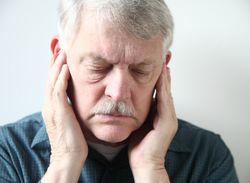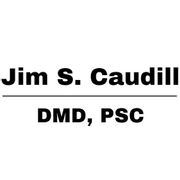
Short for the temporomandibular joint found on either side of the face, TMJ actually refers to TMD, or temporomandibular joint disorder. The temporomandibular joint connects the lower jaw to the skull in the front of the ears and features a hinge so you can speak, chew, and otherwise move your jaw up and down and from side to side. TMJ interferes with these movements, resulting in pain and discomfort often requiring the help of a dentist.
Frequently Asked Questions About TMJ
What are the causes?
Causes of TMJ vary and can include trauma to the area, such as grinding the teeth at night or sustaining a blow to the jawbone. Consistent jaw clenching due to stress or other factors can also cause symptoms. Other causes include rheumatoid and osteoarthritis, both of which can inflame the jaw. Cancer, jawbone joint infections, and bone deformities may also result in this painful disorder.
What are the symptoms?
 TMJ symptoms typically include pain in one or both sides of the jaw, facial and neck pain, chewing-related pain, earaches, and stiff jaw muscles. It can also include bite issues, or problems with how your teeth come together, as well as face and mouth swelling, and ringing in the ears. You may also hear a clicking or popping sound because your jawbone joints are not in their proper positions, or experience jaw locking problems.
TMJ symptoms typically include pain in one or both sides of the jaw, facial and neck pain, chewing-related pain, earaches, and stiff jaw muscles. It can also include bite issues, or problems with how your teeth come together, as well as face and mouth swelling, and ringing in the ears. You may also hear a clicking or popping sound because your jawbone joints are not in their proper positions, or experience jaw locking problems.
How is it treated?
Treatment for TMJ includes simple changes such as monitoring how often you clench your teeth, wearing a night guard if you grind your teeth at night, eating softer foods, and using over-the-counter pain relievers. Other measures that alleviate TMJ pain include applying hot or cold compresses to the jaw and doing exercises that relax the jaw. Taking steps to reduce your stress also contributes to relief because you will not clench and grind your teeth as much.
When should I get professional help?
If you still experience TMJ symptoms despite making lifestyle changes, your dentist or doctor may recommend prescription painkillers or braces to correct your misaligned bite. Anti-inflammatory steroid shots may also be necessary if your pain symptoms continue. Should you become unable to open or close your mouth completely or the pain will not lessen, see your dentist or doctor right away.
Don’t live with jaw pain — make an appointment with Jim S. Caudill, DMD, PSC to discuss your symptoms and devise a treatment program. The Hazard, KY-based dentist has served families throughout Perry County since 1975 and provides a full suite of general and specialty dentistry services. Call the dentist at (606) 436-3432 today to schedule your appointment or learn more about services online. Get more dental health tips on Facebook.
About the Business
Have a question? Ask the experts!
Send your question

